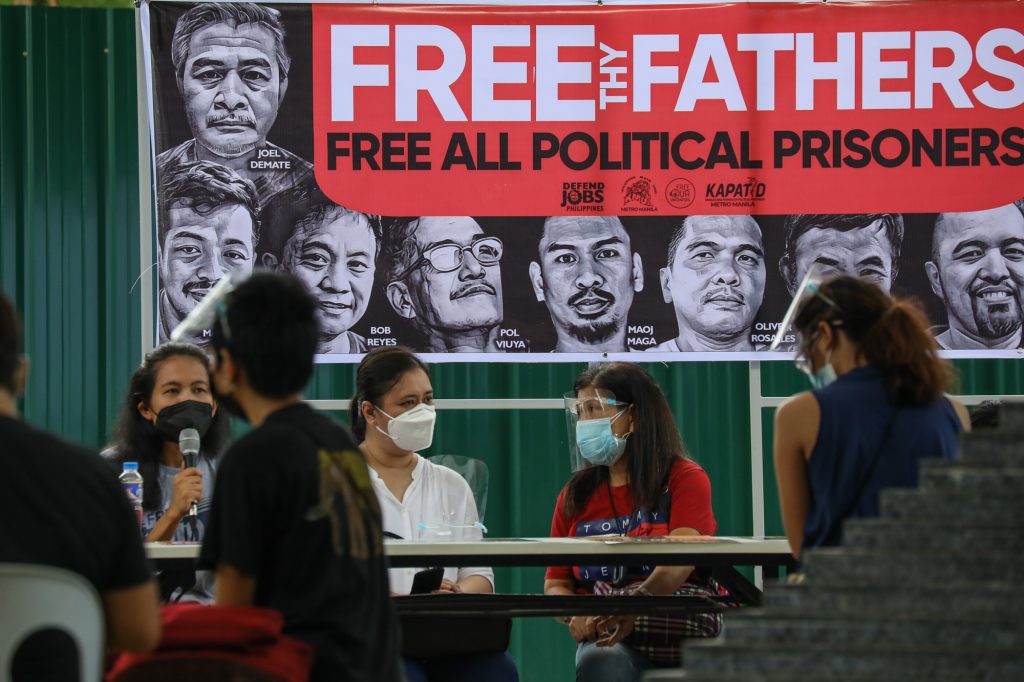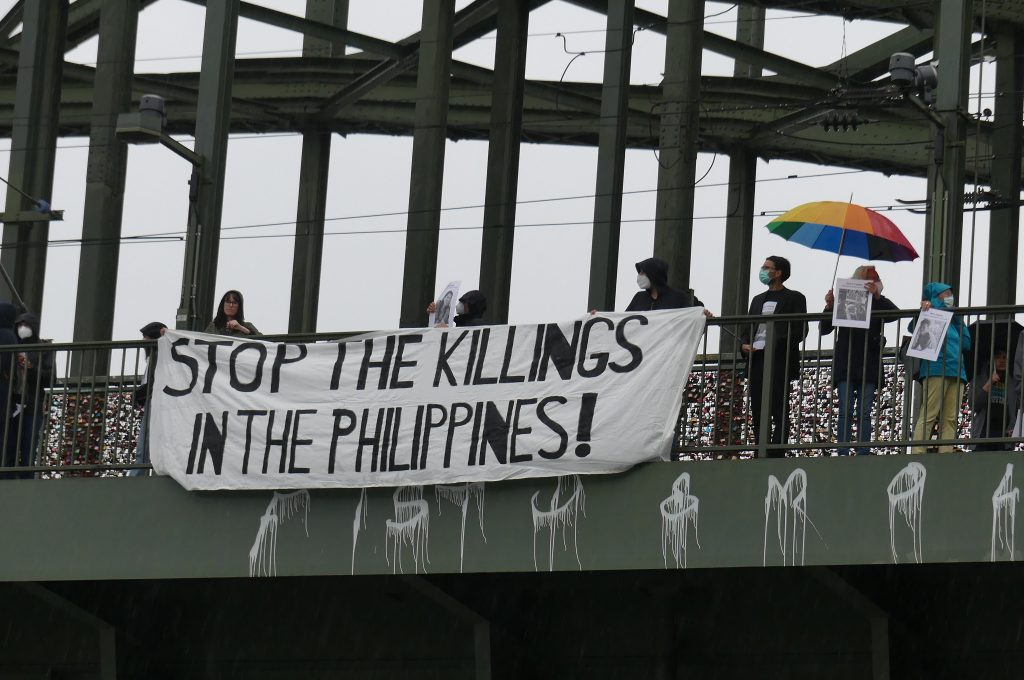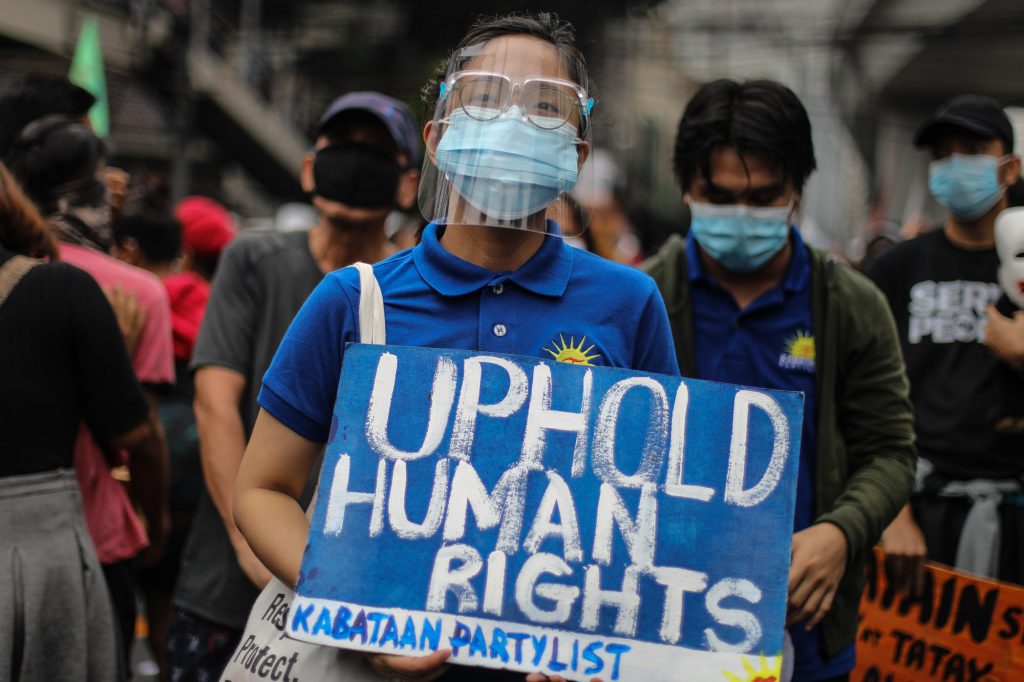
An international civil society alliance reiterated its call this week on the United Nations Human Rights Council (UNHRC) to establish an independent investigative mechanism to address human rights violations and abuses in the Philippines.
An “advocacy brief” released on Thursday, September 30, by the group CIVICUS noted that one year on from the adoption of a resolution at the UNHRC, “serious civic freedoms violations continue to occur, creating a chilling effect within civil society.”
The group urged the international community to support an “independent investigative mechanism to end attacks on civil society.”
In December 2020, the CIVICUS Monitor, a global research collaboration that rates and tracks respect for fundamental freedoms in 196 countries, downgraded the Philippines from “obstructed” to “repressed” in its People Power Under Attack report 2020.
The CIVICUS Monitor documented arbitrary arrests and detentions of human rights defenders and activists supposedly based on “fabricated charges.”
In a number of instances, the activists have been vilified and red-tagged – labelled as communists or terrorists – in relation to their work prior to their arrest.
There have also been reports of evidence “planted” by the police and military forces to justify arrests or violence against activists.
Activists have been killed over the last year, both by the security forces and by unknown individuals. In many instances, activists were killed after being red-tagged, said the report.
It noted that “none of the cases has anyone been held accountable for the killings.”
In one incident, nine community-based activists were killed in coordinated raids, known as the “Bloody Sunday” killings, which took place across four provinces on March 7 this year.
In July, the Philippine government and the United Nations formalized a human rights program, which includes strengthening domestic investigation and accountability mechanisms; improved data gathering on alleged police violations; and the implementation of civic space and engagement with civil society and the Commission on Human Rights.

“The current actions by the UN Human Rights Council have failed to deter the criminalization and attacks against activists and journalists,” said Lisa Majumdar, CIVICUS UN advocacy officer, in a statement on Thursday.
She said the new joint program seems to be just “window dressing” by the administration of President Rodrigo Duterte “to evade accountability.”
“It is time for the international community to listen to civil society voices and establish an independent investigation to hold the perpetrators to account,” said Lisa Majumdar.
Human rights groups have also documented an assault on the judiciary in the past months.
An investigative report by the Free Legal Assistance Group found that at least 61 lawyers, judges and prosecutors have been killed under the Duterte administration since 2016.
There have been no convictions so far in any of the attacks recorded.
The new brief outlines “other tactics” allegedly used to silence civil society, ranging from freezing their accounts to launching smear campaigns against them.
In June 2021, the Philippines’ Anti-Money Laundering Council froze the bank accounts of Amihan, an organization of peasant women, which the authorities alleged were linked to communist rebels.

Bank accounts of eight other nongovernmental organizations and civil society groups based in Mindanao were also covered by the order.
Human rights alliance Karapatan reported that it has been subjected to a spate of cyberattacks since July 2021 amid an online solidarity campaign #StopTheKillingsPH.
Earlier attacks against Karapatan and alternative media outlets were traced by Qurium, a Sweden-based media foundation, to the Office of the Assistant Chief of Staff for Intelligence of the Philippine Army and to the Department of Science and Technology.
“Despite the threats and litany of attacks against them, they have refused to be silenced,” said Majumdar in a statement. “The international community owes them support and protection,” she added.
In June 2021, the International Criminal Court prosecutor, Fatou Bensouda, requested judicial authorization to proceed with an investigation into crimes committed in the Philippines from Nov. 1 2011, the date the Philippines became an ICC member, to March 16, 2019.
On Sept. 15, 2021, Pre-Trial Chamber I of the International Criminal Court granted the prosecutor’s request to commence the investigation.
Source: Licas Philippines
0 Comments